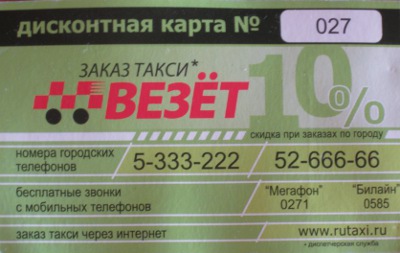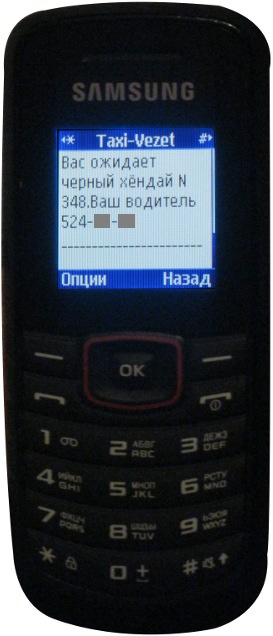Друг
The first word we Americans learn for friend in Russian is друг. The word has a consonant mutation in the plural:
| Sg | Pl | |
| Nom | друг | друзья |
| Acc | друга | друзей |
| Gen | ||
| Pre | друге | друзьях |
| Dat | другу | друзьям |
| Ins | другом | друзьями |
This word is problematic when translating from Russian to English. Americans use the word ‘friend’ very loosely. It may be a close, personal friend, one with whom you share all your intimate secrets, or it may be someone you have known for five or ten years and never had a negative encounter with. That's not the case with Russians. Russians will only use друг to mean someone they know very well, someone who knows your likes and dislikes and knows better than to buy you white bread because you only like black bread. Anyone else you know is знакомый ‘acquaintance.’ I actually like the Russian distinction. It seems more meaningful than the American version.
| — Я вчера познакомился с твоим другом в театре. — С каким другом? — С Петей, тем, кто работает в университете. — Ах, Петя, да. Но он не друг, а просто знакомый. |
“I met your friend yesterday at the theater.” “What friend?” “Petya, the one that works at the university.” “Ah, Petya, yes. But he isn't a friend, just an acquaintance.” |
| — Сколько у тебя друзей? — Да только один. Разве может быть у человека больше одного друга? |
“How many friends do you have?” “Only one. Can a person really have more than one friend?” |
| Все мои друзья говорят по-фински. Если ты не говоришь по-фински, ты не можешь быть моим другом. | All my friends speak Finnish. If you don't speak Finnish, you can't be my friend. |
| — Почему все твои друзья татары? — Татары не пьянствуют. Они более надёжные. — Я не татарин, и я не пьянствую. Почему я не твой друг? — На тебя и на трезвого положиться нельзя. |
“Why are all your friends Tatars?” “Tatars aren't drunkards. They are more dependable.” “I'm not a Tatar, and I'm not a drinker. Why aren't I your friend?” “Your not dependable even when you're sober. ” |
Кольцо
The Russian word for ring is кольцо. In the genitive plural the soft sign expends into a full-fledged vowel. Note also the stress shifts:
| Sg | Pl | |
| Nom | кольцо | кольца |
| Acc | ||
| Gen | кольца | колец |
| Pre | кольце | кольцах |
| Dat | кольцу | кольцам |
| Ins | кольцом | кольцами |
The word can indicate almost any ring, so even a basketball hoop can be called кольцо:
| В последнюю секунду он бросил мяч в кольцо и выграл матч. | In the last second he threw the ball through the hoop and won the game. |
But of course the most common ring of all is the wedding ring:
| Американцы носят обручальные кольца на левой руке. | Americans wear their wedding rings on the left hand. |
| Европейцы, в том числе и русские, носят обручальные кольца на правой руке. | Europeans, including Russians, wear their wedding rings on the right hand. |
Парк
The Russian word for park is парк. It is a perfectly regular first-declension noun, as long as you keep in mind the seven-letter spelling rule:
| Sg | Pl | |
| Nom | парк | парки |
| Acc | ||
| Gen | парка | парков |
| Pre | парке | парках |
| Dat | парку | паркам |
| Ins | парком | парками |
Today let's look at the word in contexts that distinguish location and motion. Remember that motion phrases with в/на use the accusative case, whereas location phrases use the prepositional:
| — Где ты был? — Я ходил в парк. |
“Where were you?” “I went to the park.” |
| — Где ты был? — Я был в парке. |
“Where were you?” “I was at the park.” |
| — Куда ты идёшь? — Я иду в парк. |
“Where are you going?” “I'm going to the park.” |
| — Где Виктор? — Он в парке. |
“Where is Victor?” “He is at the park.” |
| — Где ты живёшь? — Я живу в парке, где беззубый парень по имени Витя защищает меня от гопников. |
“Where do you live?” “I live in a park where a toothless guy named Vitya protects me from the gopniki.” |
Спать/поспать
The Russian word for 'to sleep' is спать/поспать. It conjugates like this:
| Imperfective | Perfective | |
| Infinitive | спать | поспать |
| Past | спал спала спало спали |
поспал поспала поспало поспали |
| Present | сплю спишь спит спим спите спят |
No such thing as perfective present in Russian. |
| Future |
буду спать будешь спать будет спать будем спать будете спать будут спать |
посплю поспишь поспит поспим поспите поспят |
| Imperative | спи(те) | поспи(те) |
The perfective form of the verb has the prefix по-, which often adds the idea of ‘for a while,’ as it does in this verb.
| Я посплю и потом пойду в кино. | I'm going to sleep for a bit and then go to the movie. |
When you use duration phrases like два часа ‘for two hours,’ they normally require the use of an imperfective verb, but in the case of perfective verbs prefixed with по- in the ‘for a while’ meaning (and sometimes for verbs with the prefixed with про-), duration phrases are possible:
| Я два часа посплю и потом пойду в кино. | I'm going to nap for two hours and then go to the movie. |
But of course when you talk about sleeping somewhere regularly, you must use the imperfective:
| Я обычно сплю днём, потому что мне приходится работать ночью. | Usually I sleep in the daytime because I have to work at night. |
| — После пяти стопок водки я очень хорошо сплю. — Какой ты алконавт! |
“After five shots of vodka I sleep very well.” “You are such an alconaut!¹” |
| Летучие мыши спят вверх ногами. | Bats sleep upside down. |
¹ ‘Alconaut’ is a Russian slang word for an alcoholic. Here is what lurkmore.ru has to say about the word:
| Видимо, восходит к началу 1960-х годов: алкаш+космонавт. Впрочем, алконавт имеет все признаки алкаша, и ни одного значительного признака космонавта, кроме, разве что, послеполётной гиперчувствительности к земному притяжению. | Apparently it originated in the early ’60s: alcoholic + cosmonaut. An alconaut, however, has all the traits of an alcoholic and not one significant feature of a cosmonaut, except maybe for a post-flight hypersensitivity to gravity. |
Такси
The Russian word for taxi is такси. It is an indeclinable neuter noun, which means it never changes its endings:
| Sg | Pl | |
| Nom | такси | |
| Acc | ||
| Gen | ||
| Pre | ||
| Dat | ||
| Ins | ||
Adjectives that modify indeclinable nouns must still occur in the case form required by the context:
| Nom | Вот жёлтое такси. | Here's the yellow taxi. |
| Acc | Я вижу жёлтое такси. | I see a yellow taxi. |
| Gen | Он стоял около жёлтого такси. | He stood near a yellow taxi. |
| Pre | Он приехал на жёлтом такси. | He arrived in a yellow taxi. |
| Dat | Она подошла к жёлтому такси. | She walked up to the yellow taxi. |
| Ins | Мы стояли перед жёлтым такси. | We were standing in front of a yellow taxi. |
Of course those are all possible in the plural as well:
| Nom | Вот жёлтые такси. | Here are the yellow taxis. |
| Acc | Я вижу жёлтые такси. | I see the yellow taxis. |
| Gen | Они стояли около жёлтых такси. | They were standing near the yellow taxis. |
| Pre | Они приехали на жёлтых такси. | They arrived in yellow taxis. |
| Dat | Она подошла к жёлтым такси. | She walked up to the yellow taxis. |
| Ins | Мы стояли перед жёлтыми такси. | We were standing in front of the yellow taxis. |
Since Russians usually don't own cars, they use taxis a lot more than most Americans. This last summer in Kazan I used them constantly. To my surprise, when I bought tickets at the movie theater at Кольцо, I was given a discount taxi card:

I'm Scottish by descent, and let me tell you that we Scots hate paying more than we have to. For us, receiving a discount card is like... gosh... what can I compare it to? It's like getting free and painless high-quality dental work. I mean, you just can't think of anything better. I used that discount card all the time. And what's even better is that when you order your cab using your cell phone, they automatically pick up your number and when your taxi arrives, you usually get a text message saying that it has arrived. For instance, here is a text message I received:

It reads, “Black Hyundai #348 is waiting for you. The driver's number is 524-XX-XX.” Most taxis don't have a taxi sign on them, so that information is really convenient. Why the heck haven't American taxis picked up such a common-sensical idea?
Taxi service is reasonably priced in Kazan, but I wouldn't be surprised if it triples over the next year. Some regulations are going into effect that will increase the fees taxi drivers have to pay, which will probably result in less competition. I'm not looking forward to the change.
<< 1 ... 19 20 21 ...22 ...23 24 25 ...26 ...27 28 29 ... 158 >>